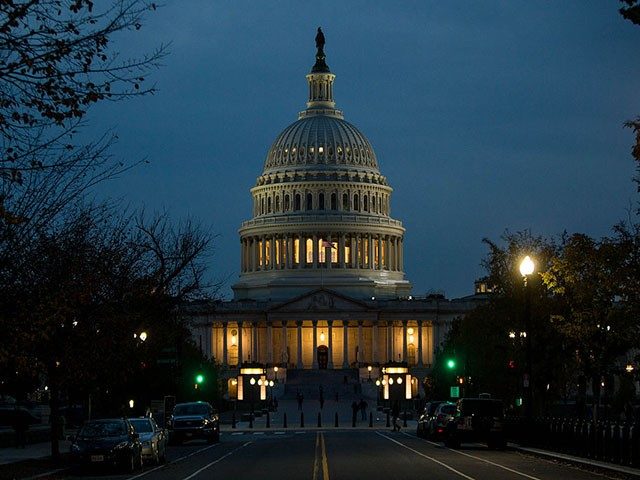History tells us our Founders designed our country to have three co-equal branches of government. But it’s been clear since the first term of President Obama that some branches were more equal than others.
The big loser in the power struggle has been Congress.
President Obama said he had a phone and he had a pen and he knew how and was willing to use them to accomplish things Congress would not grant him the power to do. By the end of this year, Obama will have added more than 83,000 pages of regulations to the Federal Register, the most ever in a single year. He owns seven of the 10 worst years for regulation.
This penchant for seizing congressional power also is how we came to be involved in a climate deal that amounts to a payoff for undemocratic rulers around the world and how we ended up paying Iran $400 million in cash to accept a deal that gives it the power to produce nuclear weapons in less than a decade.
It’s high time Congress strike back and re-assert its constitutionally enshrined co-equality with the other branches. After all, it holds the power of the purse, the ability to grant presidents the power to declare war and even the power to approve key presidential appointments.
And there happens to be a good opportunity to make this happen in the lame duck session, which enable retiring members to make one last mark on behalf of their institution and send a signal to the incoming Trump administration Congress will assert and protect its powers.
An unlikely group, led by Sen. Chris Coons, D-Del., Sen. Orrin Hatch, R-Utah and Sen. Dean Heller, R-Nev., has introduced the International Communications Privacy Act, which, according to the senators, would “clarify U.S. law enforcement’s ability to obtain electronic communications around the world.”
The legislation grew out of a case in which Microsoft was ordered to turn over data to law enforcement agencies for a case they were working on. The data are located on servers in Ireland, which raised the question of whether prosecutors could compel the company to provide data that was not even stored in the United States.
The government claims the Stored Communications Act compels Microsoft to produce the data, even though the data is stored in Dublin, because Microsoft’s home office in Redmond, Wash., ultimately controlled the server.
A federal district court judge ordered the company to produce the data in 2014, then held it in contempt of court when it refused. A U.S. Court of Appeals judge overturned that ruling, but the Department of Justice won’t give up. Last month, the Department of Justice asked a federal judge to take another look at the case.
No federal judge should be looking at the case again or otherwise. The Electronic Communications Privacy Act laid the ground rules for electronic communications privacy expectations, but it passed during the Reagan administration and has not kept pace with the explosion in relevant technology – for instance, the question of whether data stored in another country could be demanded by our law enforcement agencies.
It needs to be updated. The balance between freedom in our own effects and the needs of law enforcement to detect some crimes before they occur should be struck by the people’s representatives in Congress, not unelected judges, law enforcement officials or regulators.
And lawmakers should lean toward the privacy side for a variety of reasons. For one, it’s not just national secrets or secrets among criminals that cross those transoms. It’s also the booming Internet consumer sales industry, which supports millions of American jobs and cannot function if its underlying data is subject to seizure by government agencies.
For another, we don’t want leaders of other countries demanding data held on U.S. servers to go after their political enemies.
For still another, most Americans have little problem with government officials combing data to try to identify terror threats. But for routine law enforcement activities?
For still another, current law allows government to access any email traffic by anyone after it is 180 days old. That’s obviously a rule for another time. Today, we routinely save emails for years that we would not want to be forced to turn over to law enforcement absent a warrant.
As is the case with a lot of privacy and technology law, advances in the technology have outstripped government’s ability to keep up with laws that address current realities. Three senators, representing both parties, and members of both parties in the House of Representatives have joined together to create a law that represents the views of the American public on how to manage this inherent conflict between law enforcement’s need to know and our right to keep our private thoughts private.
It’s shovel-ready legislation – already blessed by both parties. It addresses a problem that can’t fairly be blamed on either party, so there is incentive to cooperate. If Congress could pass it in the lame duck, President Obama could sign it – and add a nice and likely durable piece to his legacy as well.

COMMENTS
Please let us know if you're having issues with commenting.